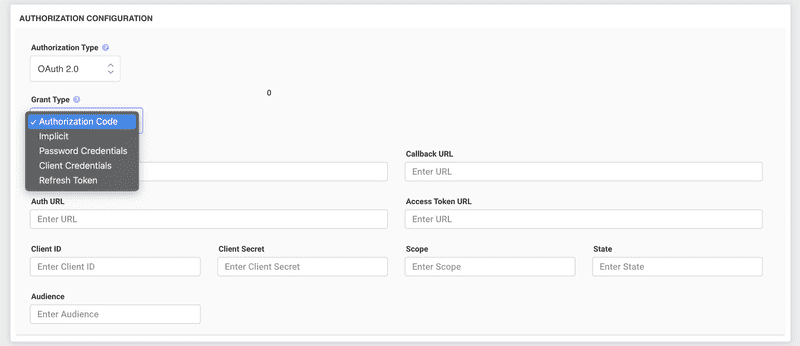What is a Grant Type?
OAuth 2.0 Authorization Context
Within the framework of OAuth 2.0 Authorization, the term "Grant Type" pertains to the method through which an application procures an access token. Essentially, the grant type specifies the kind of authorization flow the application will use to access user data.
Different Grant Types in OAuth 2.0
OAuth 2.0 defines several grant types, tailored for distinct application scenarios:
- Authorization Code:
- Best for: Applications that can keep the client secret safe, often server-side applications.
- Flow: The user is first redirected to an authentication server. Upon successful authentication, they are redirected back to the application with an authorization code. The application exchanges this code for an access token.
- Implicit:
- Best for: User-agent-centric applications, like single-page apps.
- Flow: Mirrors the Authorization Code flow, but the access token is delivered directly without an intermediate code. It’s seen as less secure than the Authorization Code method.
- Password (Resource Owner Password Credentials):
- Best for: Applications that are highly trusted, often owned by the same organization as the resource server.
- Flow: Users directly input their username and password into the application. The application then uses these credentials to fetch an access token. This flow is generally discouraged unless the client is highly trusted.
- Client Credentials:
- Best for: Services or applications that need to access their own resources, not those of a user.
- Flow: The application authenticates using its own credentials (like client ID and secret) and gets an access token in return.
- Device Code (for devices without comprehensive browser capabilities):
- Best for: Devices such as smart TVs, game consoles, or printers.
- Flow: The device communicates with the authorization server to obtain a device code and user code. The user enters the user code on another device (e.g., a smartphone). Post verification, the device receives an access token.
- Refresh Token:
- Use: It's not a standalone flow but complements other grant types. When the access token expires, a refresh token allows the application to get a new one without having the user log in again.
Why Are Grant Types Important?
Grant types offer flexibility for varying application contexts. Each one ensures that access token procurement is as secure as possible, given the application's constraints. The choice of grant type affects the interactions between the client, user, and authorization server, making its correct selection pivotal for both usability and security.
